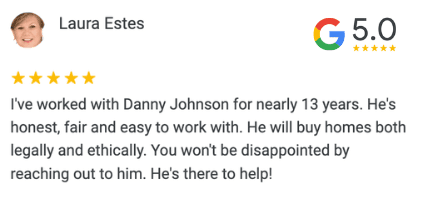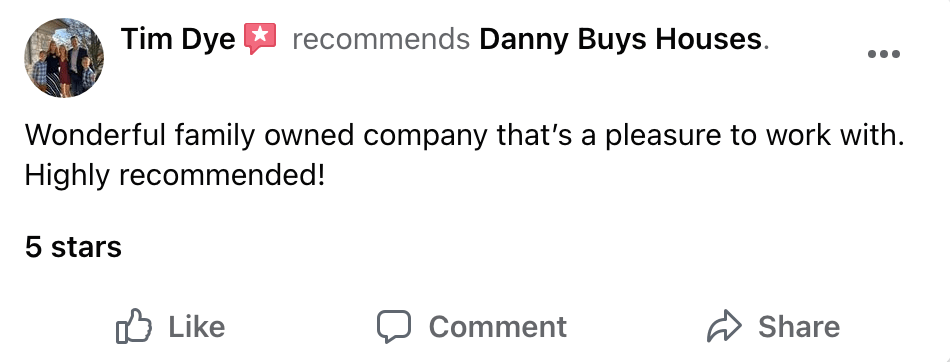
Selling a House to Pay for Assisted Living? Here’s How to Make the Most of It!
By Danny Johnson | Updated 10/8/2025, 1:55:55 PM
Selling a house to pay for assisted living? Discover smart strategies for selling your parents' home, navigating Medicaid, and maximizing funds for senior care.
- Key Takeaways
- Do you have to sell a house to pay for nursing home?
- Understanding the Emotional Impact of Selling a Home for Senior Care
- Challenges of Leaving a Long-term Residence
- Benefits of Moving to Assisted Living
- Managing Emotions During the Transition
- The Financial Landscape of Assisted Living Costs
- Timing the Sale: Before or After Moving to Senior Living?
- Pros and Cons of Selling Before the Move
- Advantages of Selling After Relocating
- Bridge Loans as a Financing Option
- Impact on Government Benefits: VA and Medicaid Considerations
- Tax Implications of Selling a House to Pay for Assisted Living
- Understanding Capital Gains Tax Exemptions
- Eligibility for Tax-Free Home Sales
- State-Specific Tax Considerations
- Essential Documents for a Smooth Home Sale Process
- Preparing the Home for Sale: Decluttering and Improvements
- The Value of Pre-sale Home Inspections
- Boosting Home Value with Cost-Effective Upgrades
- Decluttering for a Fresh Start
- Professional Staging Tips for Quick Sales
- Legal Considerations When Selling a Parent's Home
- Maximizing Home Value: Working with Real Estate Professionals
- Sell a House Fast To a Cash Home Buying Company
- Conclusion: Ensuring a Successful Transition to Assisted Living
🗂 Table of Contents
Moving into assisted living is difficult for everyone involved. This is especially true if you are helping a parent make the move.
This was shared by a client named Guadalupe recently, "As I sit in my childhood home, filled with memories, I feel a mix of emotions. Kind of like I am lost and searching for something familiar in the dark. Selling this house to pay for my parents' assisted living feels daunting and scary."
If you're facing this too, know you're not alone. Many families go through this, and there are ways to handle it wisely so that you can move with confidence.
Many Americans sell their homes to help their aging loved ones. This decision is a combination of practical and emotional choices.

Switching to senior care often requires selling a home, a process that takes about four to six months. Families consider the type of care facility, what the costs will be and the sale's financial impact.
The costs for long-term care are high. It takes a lot to pay for senior care that is adequate. The price varies depending on the type whether it be a living facility, senior living community or other type of senior care.
According to the National Council on Aging, "The average cost of assisted living in the United States is $4,500 per month or $54,000 annually."
Also, "At an average monthly rate of $9,733 for a private room, nursing homes are more expensive than both assisted living and memory care. Keep in mind Medicaid will cover 100% of the cost of a nursing home for Medicaid-eligible older adults, but this is not the case with assisted living."
Nursing home care costs quite a bit more as you can see. These numbers highlight the need to sell and get the most from your home sale for your loved ones' care.
Key Takeaways
- The average home sale process takes about 4 to 6 months
- Assisted living costs average $4,500 per month in the U.S.
- Nursing home care averages $9,733 monthly for a private room
- Consider timing, financial needs, and stress levels when deciding to sell your parents' house
- Bridge loans can help finance care costs before the home sells
Do you have to sell a house to pay for nursing home?
Selling your home isn't always needed to pay for nursing home care. Many seniors worry about the costs of long-term care. But, there are other ways to manage these expenses without selling your home.
Long-term care insurance is a good option to think about. It can help cover the costs of nursing home care, making things easier for families. Another choice is a reverse mortgage, which lets homeowners use their home's value without selling it.

Medicaid is also a possible solution for those who qualify. In 2024, most states say you can't have more than $2,000 in assets to qualify for Medicaid. But, California has changed this rule as of January 1, 2024.
Remember, Medicaid looks back at asset transfers for 60 months in most states.
Even with these options, the cost of nursing home care often means selling a home is a good choice.
Before deciding, talk to a financial advisor about your options for nursing home care costs. They can guide you through the complex world of senior living costs and find the best solution for you or your parents' situation.
Understanding the Emotional Impact of Selling a Home for Senior Care
Selling a home for senior care is emotionally tough. Seniors often have lived in their houses for decades. This makes the move hard. It brings up deep feelings and memories. The home may be all they have left. Once the home is sold, depression can develop or worsen.

Challenges of Leaving a Long-term Residence
Leaving a long-term home is difficult. Seniors feel sad about saying goodbye to familiar places and friends. They worry about losing their independence and facing an unknown future.
- Sadness over leaving memories behind
- Fear of the unknown
- Stress from the moving process
Benefits of Moving to Assisted Living
Assisted living has many benefits, however. These communities offer support, social connections, and peace of mind. Seniors get to enjoy a life without upkeep and get care when needed.
According to Richard W. Johnson from the Urban Institute, "Using longitudinal data through 2010, Hurd, Michaud, and Rohwedder (2014) estimate that 58 percent of adults receive nursing home care after age 50."
Selling a house to pay for assisted living can make it easier for the estate once you or your parents pass away. That's not something we want to think about, but it we should plan for it either way. This is because you will be selling the house before probate is necessary.
Managing Emotions During the Transition
Here are ways to make the move easier:
- Involve family in the process
- Focus on new opportunities
- Keep cherished items and photos
- Plan visits to old neighborhoods
- Join community activities in the new home
It's okay to feel mixed emotions. With time and support, many seniors find happiness and comfort in their new homes.
The Financial Landscape of Assisted Living Costs
Understanding assisted living costs is important for good financial planning. We have already touched on the average monthly costs for assisted living and nursing home care. But wait, there's more! There always is, isn't there?
Senior care costs go beyond just living expenses. Memory care, for example, can add $800 to $1,200 a month. These costs usually include things like big rooms, restaurant-style meals, and help with daily tasks.
Long-term care insurance can help manage these costs. With at least 70% of people over 65 likely needing some kind of long-term care, this insurance is crucial for financial planning for seniors.
Government programs can offer some help. Veterans might get the Aid & Attendance benefit, and Medicaid helps in 44 states and Washington D.C. But, Medicare usually doesn't cover long-term care costs.
Many seniors use savings, Social Security, and money from selling their homes to pay for assisted living. Planning early and carefully is key to a smooth move to assisted living.
Timing the Sale: Before or After Moving to Senior Living?
Deciding when to sell your home before moving to senior living can be a tough decision. The timing affects your money and stress levels during this big change.
Pros and Cons of Selling Before the Move
Selling your home first gives you money for your new life. It lets you use your home's value to explore more senior living options. Yet, keeping your home ready for buyers can be hard, especially for seniors dealing with many showings.
Advantages of Selling After Relocating
Selling after you move is less stressful. You can pack and move when you like. An empty home makes staging easier, which might help sell faster and for more money. But, you'll have ongoing costs like mortgage and utilities that can reduce your profits if the sale takes time.
Bridge Loans as a Financing Option
Bridge loans can help when you're selling your home. These short-term loans cover costs while you wait for your home to sell. This option gives you flexibility in the market, letting you sell at the best time without rushing your move.
There's no single right answer for everyone. Your choice should fit your personal situation and the real estate market. A Seniors Real Estate Specialist can guide you through this complex process and help you make the right decision for you.
Impact on Government Benefits: VA and Medicaid Considerations
Selling a home to pay for assisted living can affect your VA benefits and Medicaid. It's important to know how this can change your financial planning and support access.
VA benefits have certain asset limits.
According to Senior Services of America, "The VA counts things like Social Security payments, retirement, and more as your countable income.
Depending on your situation, there are different maximum amounts you might receive."
Current maximum monthly VA Pension amounts are:
- $1,937 for a single veteran
- $2,296 for a veteran plus spouse/dependent
- $3,072 for two married veterans who both meet the qualifications
- $1,245 for surviving spouse with no dependents
Medicaid eligibility is also complex. Asset limits vary by state but are often around $2,000 for individuals. Selling a home can put you over this limit. Medicaid has a five-year look-back period for asset transfers, which could lead to a penalty if not handled right.
It's important to understand Medicaid's estate recovery process. After a beneficiary's death, Medicaid may try to get back what it paid for care costs. This can include putting a lien on property, affecting what heirs can inherit. If you go to sell your parents' house after death and a lien exists, it will have to be paid to close.
Timing your home sale carefully and looking into Medicaid Asset Protection Trusts can help. Each situation is different, and getting professional advice can greatly help in keeping your assets safe and ensuring you get the care you need.
Tax Implications of Selling a House to Pay for Assisted Living
Selling your home to fund assisted living can have big tax effects. It's key to know the IRS rules and tax exemptions. This helps you make smart choices about your money and care.
Understanding Capital Gains Tax Exemptions
The IRS gives big tax breaks for selling homes that are were their primary residence for 2 out of the last 5 years. Single people can exclude up to $250,000 of profit. Married couples filing together can exclude up to $500,000. This means many seniors won't owe federal taxes on their home sale if the proceeds fall within those ranges.
Eligibility for Tax-Free Home Sales
To get these exemptions, you must have owned and lived in the home for at least two of the last five years. If you do this, you can use the full exclusion amount.
State-Specific Tax Considerations
While federal tax rules are the same everywhere, state taxes can differ. Some states add extra taxes on real estate or have different capital gains rules. Make sure to look into your state's tax laws or talk to a local tax expert.
- Keep records of home improvements to increase your cost basis
- Be aware of potential depreciation recapture if you've rented out your home
- Consider the impact on Medicaid eligibility when selling your home
Selling a house to pay for assisted living has complex tax rules. Talk to a financial advisor or tax expert to understand these rules. This way, you can make the most of your financial benefits.
Essential Documents for a Smooth Home Sale Process
Having the right documents ready can make the process smoother and avoid delays. Let's look at the key papers you'll need for a successful sale.
If your home is in a homeowners association, gather all HOA documents. These have info on community rules and fees that buyers need to know. Make sure to add home warranties and insurance papers to your file too.
- Utility bills (last 12 months)
- Property tax statements
- Home improvement receipts
- Survey or plot plan
If you're selling for a parent with dementia, you'll need extra papers. Power of attorney or guardianship documents are key. They prove you can sell the home and make decisions for the homeowner.
Organizing these documents early can save time and reduce stress. Think about making both digital and physical copies of your papers. This makes them easy to access and share with others.
Preparing the Home for Sale: Decluttering and Improvements
When you're selling your home to fund assisted living, you will sell quickly if you prepare it first. This means decluttering, improving the home, and making it look appealing to buyers.
The Value of Pre-sale Home Inspections
Pre-sale inspections can be helpful for finding issues early. They reveal hidden problems so you can fix them before listing your home. This approach prevents surprises during buyer inspections and keeps your asking price intact.
Boosting Home Value with Cost-Effective Upgrades
Improving your home smartly can greatly increase its value. Consider fresh paint, minor repairs, and updated fixtures. These changes don't have to be expensive to make a big impact.
Decluttering for a Fresh Start
Decluttering is crucial, especially for seniors moving to assisted living. Begin by sorting items into keep, donate, sell, and discard piles. This not only gets your home ready for sale but also makes moving easier.
Professional Staging Tips for Quick Sales
Staging your home can make it sell faster. Here are some expert tips:
- Remove family photos and personal items to make spaces feel neutral
- Arrange furniture to open up rooms
- Use neutral colors to attract more buyers
- Improve curb appeal with simple landscaping
By using these tips, you can make your home welcoming. A well-prepared home sells quicker and for a better price, giving you more money for assisted living costs.
Legal Considerations When Selling a Parent's Home
Selling a parent's home to pay for assisted living requires legal steps. Elder law is key in this process. If your parent has dementia, you'll need the right authority to sell their property.
This is where a power of attorney gives you the ability to sell your parents' house. It lets you make financial decisions for your parent. Without it, you might have to go through guardianship, which is long and expensive.
Real estate law also adds complexity. You'll deal with property transfers, contracts, and disclosures. An experienced attorney can help you with these steps.
- Review existing legal documents
- Consult an elder law specialist
- Understand your state's real estate laws
- Prepare necessary paperwork for the sale
Setting up a power of attorney early makes future decisions easier. It's smart to do this before it's urgent. This planning can save time and reduce stress during a tough time.
Every situation is different. What's right for one family might not be right for another. Always get advice that fits your unique situation.
Maximizing Home Value: Working with Real Estate Professionals
Real estate agents can help with selling your house to fund assisted living. They know how to analyze the market and sell your property for the best price.
It's smart to pick an agent who knows about senior relocations. These agents get the special needs of older sellers and offer great advice. Think about finding a Senior Real Estate Specialist (SRES) for specific help.
Home appraisals are vital for figuring out your property's true value. Experts look at many things to determine your home's worth. This info helps set a price that draws buyers and gets you a good return.
Creating strong selling strategies is crucial for a successful sale. Your agent will make a marketing plan that shows off your home's best points. This could include:
- Professional photography
- Virtual tours
- Targeted online advertising
The aim is to sell fast and for the best price. Real estate pros can make the process smoother and less stressful during this big change.
With the help of real estate experts, you can sell your home with confidence. This way, you can get the most out of your home's value to cover your assisted living costs.
Sell a House Fast To a Cash Home Buying Company
Companies like Danny Buys Houses in San Antonio, Texas, pay cash for houses. Danny Buys Houses is considered by many to be the best cash home buyer in San Antonio, TX. This is due to their high number of satisfied customers. They allow people to sell their house fast without needing to make repairs. You can sell your house as-is and leave behind anything you do not want. This is helpful when transitioning into assisted living as you won't be able to bring everything with you.
If you are in need of a quick sale of a house to pay for long-term senior care or assisted living facility, give Danny Buys Houses a call. We'd be happy to make a no-obligation cash offer for the house.
Conclusion: Ensuring a Successful Transition to Assisted Living
Selling a house to fund assisted living can be overwhelming when you don't know your options. It's important to think about both the emotional and financial sides.
Home equity is a big part of the wealth for people 65 and older, making up 76%. It's important to look at all your options before selling. Think about reverse mortgages or renting out your property. A financial advisor can help make a good plan for your sale money and care costs.
Family support is very important during this time. Talking openly about selling and using the money can make things easier. Assisted living offers better care and social life. For a smooth move, get advice from tax experts and elder law attorneys. They can help with things like capital gains taxes and trusts for care costs.

AUTHOR
Danny Johnson
Owner and Founder at Danny Buys Houses
Danny Johnson is an experienced real estate investor who has been buying houses for cash since 2003. As owner of Danny Buys Houses, Danny's goal is to help homeowners sell their house fast, regardless of the situation, so they can move on with their life.
Danny has been featured in publications such as Forbes, Realtor.com, BiggerPockets, Yahoo Finance, US News, and more. He is also the author of the book 'Flipping Houses Exposed'.




